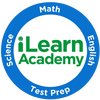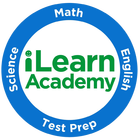|
Many students look forward to sun-filled summers free from books and homework, but this extended break from learning sets many students back.
The average summer learning loss in math and reading for American students amounts to one month per year, according to a report by the RAND Corporation. The negative effects of summer learning loss show up as early as first grade in some students, and it takes up to two months after school starts for students' brain development to get back on track. Summer learning loss can have long-term implications, as well. By the end of sixth grade, students who experience summer learning loss are, on average, two years behind their peers. This learning and achievement gap is daunting. The good news, however, is that summer learning loss is easy to avoid. While summer provides a break from learning in a traditional school environment, it offers countless opportunities for students to grow academically outside the classroom. From pursuing their particular interests to exploring brand new subjects, summer gives students time to build knowledge in fun, stimulating ways. Looking for strategies to combat learning loss while keeping your child's summer fun? Here are five easy ways to weave some learning into those carefree summer days: 1. Add the Library to Your Weekly Routine Reading is the best way for students to keep their brains sharp during summer break. Reading promotes brain development, teaches vocabulary and comprehension, builds empathy and opens students' minds to worlds outside their own. Visit the library each week so your student can pick out a new book. If she's a reluctant reader, try creating a simple incentive program to get her started: When she finishes five books, she gets a small prize. If she can finish 20, she earns an ice cream date with the whole family. Sometimes, her own library card is all the incentive a student needs! 2. Learn from Household Projects Learning doesn't have to involve writing assignments and problem sets. Much of learning is simply developing the ability to think critically and solve problems. What better practice than to complete a project as a family? This could be as simple as baking a cake, assembling a bicycle or building a birdhouse. Walk through the directions together, and let your student guess what step comes next -- or write out all the steps beforehand and let him guess the correct order. This list of 15 kid-friendly household projects can get you started. 3. Visit a Cultural or Historical Site A visit to a local cultural or historical site presents many opportunities to learn. Together, read any signage providing background about the site, and talk about what it might have been like to live during that time period. What would be different? What would be the same? Talk to your child about why cities, states and nations choose to preserve historical sites, and ask for their opinions. There is a huge collection of excellent historical fiction for children and teens. Do a quick search to find any books related to the site or area you're visiting, then read the book together before or after your trip. The same goes for age-appropriate movies and TV shows. 4. Take a Hike Nature is a boundless source for summer learning. Students can study types of plants, animal behavior and ecology simply by spending time outdoors. Take some time to learn about the parks and walking trails in your town. Some parks districts even offer guided hikes for children and families. Here's a list of fun, educational outdoor activities to spark students' curiosity about nature. 5. Invest in a Tutor Summer tutoring keeps your child's academic skills sharp and her mind engaged. Even one hour weekly with a tutor sets students up for success during the year. One-on-one and small-group tutoring not only boosts grades, it builds confidence and helps students feel comfortable confronting new academic challenges. In short, tutoring can affect a student's attitude toward learning for the rest of his or her life. Get the most from your investment by finding a tutoring center with certified teachers, personalized lesson plans and a results-focused approach. With these simple steps, your student will be ready to start the school year strong. iLearn Academy offers two-day-a-week summer academic programs that help students keep math and reading skills sharp. Browse our summer offerings to find a schedule that works for you.
0 Comments
Leave a Reply. |
Categories |
We make a personal commitment to ensure each student is well-prepared for the academic school year.
Dedicated to helping your student succeed.
©
iLearn Academy 2019

 RSS Feed
RSS Feed
